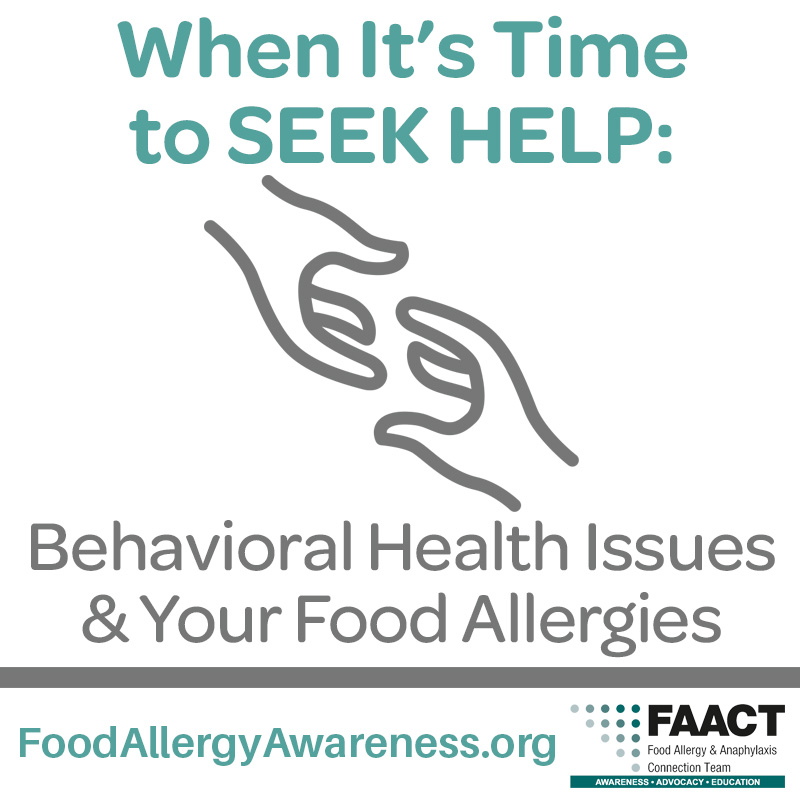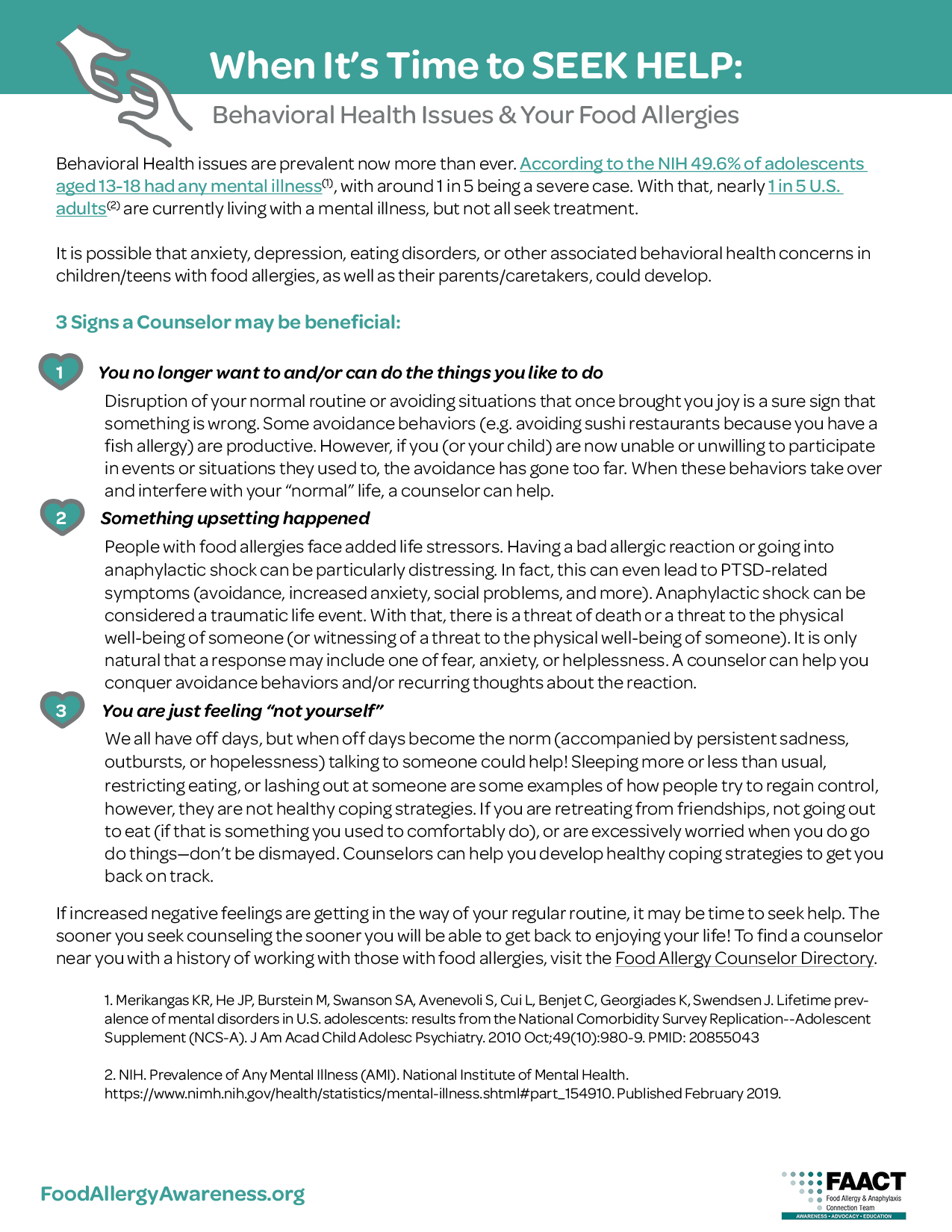Behavioral Health
Anxiety and Depression
Back to Category View
When It’s Time to Seek Help: Behavioral Health Issues and Your Food Allergies
Behavioral Health issues are prevalent now more than ever. According to the NIH 49.5% of adolescents aged 13-18 had any mental illness(1), with around 1 in 5 being a severe case. With that, nearly 1 in 5 U.S. adults(2) are currently living with a mental illness, but not all seek treatment.
It is possible that anxiety, depression, eating disorders, or other associated behavioral health concerns in children/teens with food allergies, as well as their parents/caretakers, could develop.
3 Signs a Counselor may be beneficial:
1. You no longer want to and/or can do the things you like to do
Disruption of your normal routine or avoiding situations that once brought you joy is a sure sign that something is wrong. Some avoidance behaviors (e.g. avoiding sushi restaurants because you have a fish allergy) are productive. However, if you (or your child) are now unable or unwilling to participate in events or situations they used to, the avoidance has gone too far. When these behaviors take over and interfere with your “normal” life, a counselor can help.
2. Something upsetting happened
People with food allergies face added life stressors. Having a bad allergic reaction or going into anaphylactic shock can be particularly distressing. In fact, this can even lead to PTSD-related symptoms (avoidance, increased anxiety, social problems, and more). Anaphylactic shock can be considered a traumatic life event. With that, there is a threat of death or a threat to the physical well-being of someone (or witnessing of a threat to the physical well-being of someone). It is only natural that a response may include one of fear, anxiety, or helplessness. A counselor can help you conquer avoidance behaviors and/or recurring thoughts about the reaction.
3. You are just feeling “not yourself”
We all have off days, but when off days become the norm (accompanied by persistent sadness, outbursts, or hopelessness) talking to someone could help! Sleeping more or less than usual, restricting eating, or lashing out at someone are some examples of how people try to regain control, however, they are not healthy coping strategies. If you are retreating from friendships, not going out to eat (if that is something you used to comfortably do), or are excessively worried when you do go do things—don’t be dismayed. Counselors can help you develop healthy coping strategies to get you back on track.
If increased negative feelings are getting in the way of your regular routine, it may be time to seek help. The sooner you seek counseling the sooner you will be able to get back to enjoying your life! To find a counselor near you with a history of working with those with food allergies, visit the Food Allergy Counselor Directory.
References:
1. Merikangas KR, He JP, Burstein M, Swanson SA, Avenevoli S, Cui L, Benjet C, Georgiades K, Swendsen J. Lifetime prevalence of mental disorders in U.S. adolescents: results from the National Comorbidity Survey Replication--Adolescent Supplement (NCS-A). J Am Acad Child Adolesc Psychiatry. 2010 Oct;49(10):980-9. PMID: 20855043
2. NIH. Prevalence of Any Mental Illness (AMI). National Institute of Mental Health. https://www.nimh.nih.gov/health/statistics/mental-illness.shtml#part_154910. Published February 2019.
Download FAACT's "When It's Time to Seek Help" handout.
